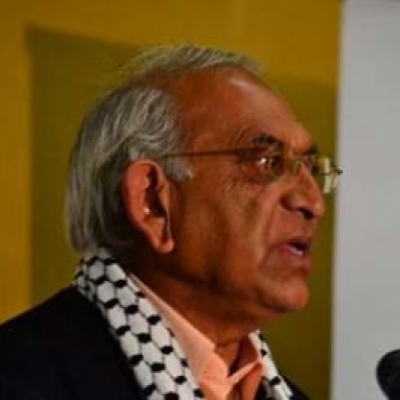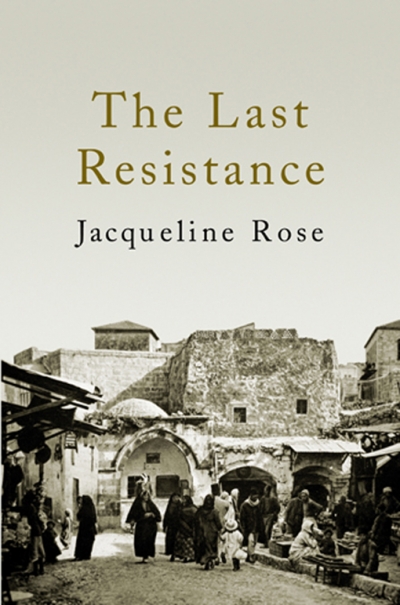



 Iqbal Jassat
Iqbal Jassat
A regular contributor to the London Review of Books, Jacqueline Rose has written a compelling new book which Sarah Roy of Harvard University correctly predicts is destined to become a standard in the field of literature on Zionism. Professor of English at Queen Mary’s College, University of London, Rose is also known for the Channel 4 documentary “Dangerous Liaison – Israel and America”, which she wrote and presented.
What makes The Last Resistance a powerful testament of contemporary Israeli politics is its ability to transcend the notorious Nazi era persecution of the Jewish people to position Zionism’s legacy of making life intolerable for another people: the Palestinians. The zionists’ favourite tool is to use the horrors inflicted on the Jewish people as a blunt instrument to stifle discussion, much less criticism of their own persecution of the Palestinians.
Being a specialist in psychoanalysis, Rose is able to combine her literary skills and intellectual grasp of many troubling questions pertaining to the creation of Israel as a state intended to save the Jewish people, to produce this masterpiece. In addition, being a compilation of essays, all written after 9/11, Rose succeeds in creating greater depth and diversity in dealing with the term “Resistance”. She cites Irene Nemirovsky’s Suite Francaise, which explores complex personal relations during the Nazi era and how resistance changes shape and shifts allegiances. “This word”, Jacques Derrida writes, “which first resonated in my desire and imagination as the most beautiful word in the politics and history of this country […] charged with all the pathos of my nostalgia, as if what I would have wanted not to miss at any cost would have been to blow up trains, tanks and headquarters between 1940 and 1945.”
Whilst some readers may possibly find a dis-connect between the essays and their timeframes, the dominant underlying theme of resistance makes it a fascinating study. The thread flowing from events related to resistance against Nazi Occupation to resistance against Israeli Occupation and the narratives interwoven around historical personalities makes this book all the more compelling. In Rose’s own words, one of the central questions of the essays is how best to draw the line that runs from this history to Palestine.
For Vladimir Jabotinsky, whom Rose describes as perhaps the most renowned, albeit controversial figure in Zionist history after Theodore Herzl and David Ben-Gurion, Arab national aspirations were legitimate. “Unlike those Zionists who blithely predicted, with a barely concealed racism, that the Arabs would relinquish their land when they saw how the Jewish pioneers made it prosper, he insisted they were a people of dignity who would not be bought: ‘The entire country is full of Arab memories’.” Perhaps the most moving part of The Last Resistance is the chapter devoted to the late Edward Said. Originally published in the winter 2005 edition of Critical Inquiry as a special tribute to Professor Said, Rose was one of the contributors invited to write as if continuing the dialogue with him.
Here she cites her visit to Said at his apartment [four days before his death] “clutching a rapidly photocopied version” of The Question of Zion which she acknowledges as a deliberate echo of, and “my tribute” to, The Question of Palestine. The wide range of issues covered in this intriguing compilation by Rose makes it an exciting addition to a narrative on Palestine from a refreshing perspective.
Iqbal Jassat is the chairman of the Media Review Network, South Africa.
